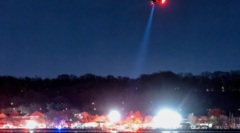Survivors of the Red Sea dive boat sinking accuse Egyptian authorities of covering up the incident, claiming they were coerced into signing unreliable witness statements and waivers. Critics of the investigation point to safety failures aboard the vessel, warning of significant shortcomings in the local diving industry.
Survivors of Red Sea Dive Boat Tragedy Allege Cover-Up and Safety Failures

Survivors of Red Sea Dive Boat Tragedy Allege Cover-Up and Safety Failures
Survivors from the recent Red Sea diving accident reveal troubling pressure from authorities to sign misleading documents amid ongoing investigations.
Survivors of a tragic dive boat sinking in the Red Sea have leveled serious accusations against Egyptian authorities, claiming they were pressured to sign witness statements they could not understand. The survivors, rescued from the Sea Story after its sinking on November 25, allege that statements were translated poorly by an employee of the boat’s operating company, Dive Pro Liveaboard, who also attempted to secure waivers releasing the company from liability.
The ill-fated vessel carried 46 individuals when it sank, leading to the recovery of four bodies and leaving seven missing, including two British divers. Survivors who spoke to the BBC reported feeling coerced during interrogations, some while in their hospital beds, by individuals they believed to be investigators. The credibility and authority of the so-called judges conducting these hearings were questioned by the victims.
Frøydis Adamson, a survivor and Norwegian police investigator, remarked on the troubling situation where the man translating statements was affiliated with the company being investigated. "They could have written anything. I don't know what I signed," she lamented. Many survivors echoed this sentiment, noting that their accounts of safety violations and the conditions on board were misrepresented or omitted in the final reports they were required to sign.
The survivors expressed disbelief at the narrative being put forth by authorities, which often blamed the disaster on an alleged rogue wave. A respected oceanographer contradicted this explanation, highlighting that official weather data contradicted claims of an unusual wave at the time of the sinking. Furthermore, survivors noted that they were discouraged from attributing blame to specific individuals during the investigation, with some saying the authorities seemed set on exonerating the boat’s operators from any wrongdoing.
The survivors also revealed a frantic attempt by Dive Pro Liveaboard representatives to secure waivers as they prepared to leave for Cairo. Justin Hodges, one of the rescued divers, recounted how he discovered documents intended to release the boat operators from liability being presented under misleading conditions. “My blood was boiling,” he stated, emphasizing the frustration felt by those who narrowly escaped tragedy.
The families of the missing individuals, particularly the two Britons who remain unaccounted for, have expressed disappointment at the Egyptian government's lack of clear communication and called for a comprehensive investigation. Friends and relatives of Jen Cawson and Tarig Sinada noted the discrepancies and evasive responses from authorities, stating that it feels like the Egyptian government is attempting to obscure details of the incident to protect the tourist sector.
Compounding these safety concerns, an independent report last year analyzed vessels operating in the region and found alarming deficiencies regarding safety and regulation in the diving industry there. The report revealed that no inspected boats had adequate safety protocols or maintenance systems in place, indicating widespread unregulated practices.
As the investigation continues, the survivors of the Sea Story and the families of the missing diver urge authorities to conduct a transparent examination of the circumstances that led to this tragic event, advocating for the safety of future dive excursions in the region.



















